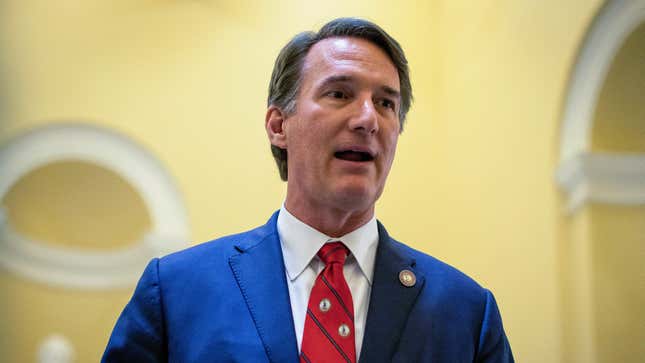Democrats Flip the Virginia House, Blocking Governor’s Proposed Abortion Ban
It's an embarrassing loss for Gov. Glenn Youngkin (R), who thought he could market a 15-week abortion ban as a "reasonable limit."
AbortionPolitics

Democrats in Virginia held the state Senate and flipped the House of Delegates in an election that was widely seen as a referendum on abortion rights. Gov. Glenn Youngkin (R) had planned to pursue a 15-week ban if his party took the Senate. But despite spending the last couple of months—and a couple of huge stacks of cash—lying to voters that a 15-week ban isn’t a ban, that path is now effectively cut off.
All 40 seats in the Senate and 100 seats in the House were up for election, but NBC News noted that fewer than a dozen of the 140 seats were actually competitive. Even if Democrats only held the Senate, it would have denied Youngkin the trifecta necessary to pass a ban—but Democrats also regained control of the House. The races were called by Decision Desk. In one key Senate race, Schuyler VanValkenburg (D) beat incumbent state Sen. Siobhan Dunnavant (R), an anti-abortion OB/GYN.
-

-

-

-

-

-

-

-

-

-

-

-

-

-

-

-

-

-

-

-

-

-

-

-

-

-

-

-

-

-

-

-

-

-

-

-

-

-

-

-








































